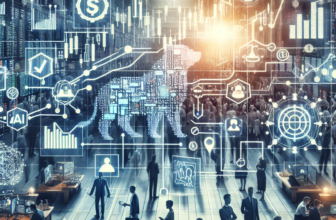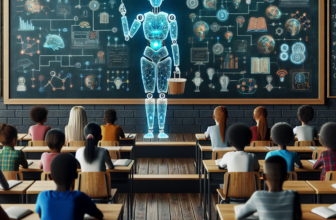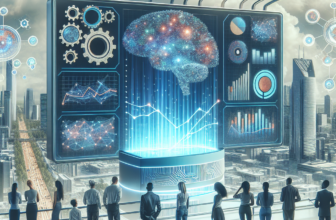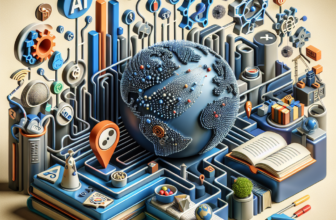Revolutionizing Education: How AI Will Transform the Learning Experience

Revolutionizing Education: How AI Will Transform the Learning Experience
Artificial Intelligence (AI) has evolved rapidly in recent years and is now poised to revolutionize the field of education. With the power to analyze vast amounts of data, personalize learning experiences, and provide real-time feedback, AI has the potential to transform how we teach and learn, making education more accessible and effective for all.
The Role of AI in Education
AI in education can play various roles, from supporting teachers in their instructional practices to empowering students to take control of their own learning. Here are some ways AI is transforming the learning experience:
Personalized Learning
One of the most significant benefits of AI in education is its ability to personalize learning experiences. AI algorithms can analyze student data to identify individual strengths, weaknesses, and learning styles. By tailoring content and resources to each student’s specific needs, AI can ensure that students receive the support and challenges they require to succeed.
Adaptive Assessments
Traditional assessments provide limited insight into a student’s progress and understanding. AI-powered adaptive assessments, on the other hand, can dynamically adjust the difficulty and content based on a student’s responses. This approach provides a more accurate representation of a student’s knowledge, allowing teachers to better gauge their understanding and address any areas of weakness.
Virtual Teachers and Tutors
AI-powered virtual teachers and tutors can offer personalized support to students outside of the traditional classroom setting. These virtual assistants can quickly adapt to individual learning styles and provide immediate feedback, making learning more interactive and engaging. Students can benefit from round-the-clock access to educational resources and personalized assistance, significantly enhancing their learning experience.
Efficient Administrative Tasks
AI can automate time-consuming administrative tasks, such as grading papers and managing student records. By freeing up teachers’ time, AI enables educators to focus on more meaningful interactions with students and dedicate more effort to lesson planning and creative teaching strategies.
These are just a few examples of how AI is revolutionizing education. The possibilities are vast, and as technology continues to advance, the impact of AI on the learning experience will only grow.
FAQs about AI in Education
Q: What are some potential challenges of implementing AI in education?
A: While AI in education holds great promise, there are several challenges that need to be addressed. Privacy concerns, data security, ethical considerations, and ensuring equitable access to technology are among the key challenges that need careful attention in order to harness AI’s potential most effectively.
Q: Is AI in education intended to replace human teachers?
A: Absolutely not. AI in education is designed to enhance and support teaching practices, not replace teachers. The human connection, mentoring, and emotional intelligence that teachers provide are irreplaceable. AI serves as a tool to augment and personalize the learning experience, not as a substitute for human interaction.
Q: How can AI benefit students with special needs?
A: AI has tremendous potential to support students with special needs. By analyzing and interpreting data, AI can adapt content, resources, and assessments to meet the unique needs of these students. It can provide personalized interventions, visual aids, and audio assistance, enabling students with special needs to thrive in inclusive educational environments.
Q: What skills will educators need to effectively use AI in education?
A: Educators will need to develop new skills to effectively incorporate AI into their teaching practices. They will need to understand how to interpret AI-driven data insights, integrate AI tools into their lessons, and provide guidance on using AI ethically and responsibly. Continuous professional development and training opportunities will be key to ensuring educators can adapt to the changing educational landscape.
In conclusion, the integration of AI in education has the potential to revolutionize learning experiences. By personalizing learning, providing adaptive assessments, offering virtual support, and automating administrative tasks, AI can unlock new possibilities and enhance educational outcomes. Educators must embrace the opportunities AI brings, equipping themselves with the necessary skills to harness its potential effectively.






